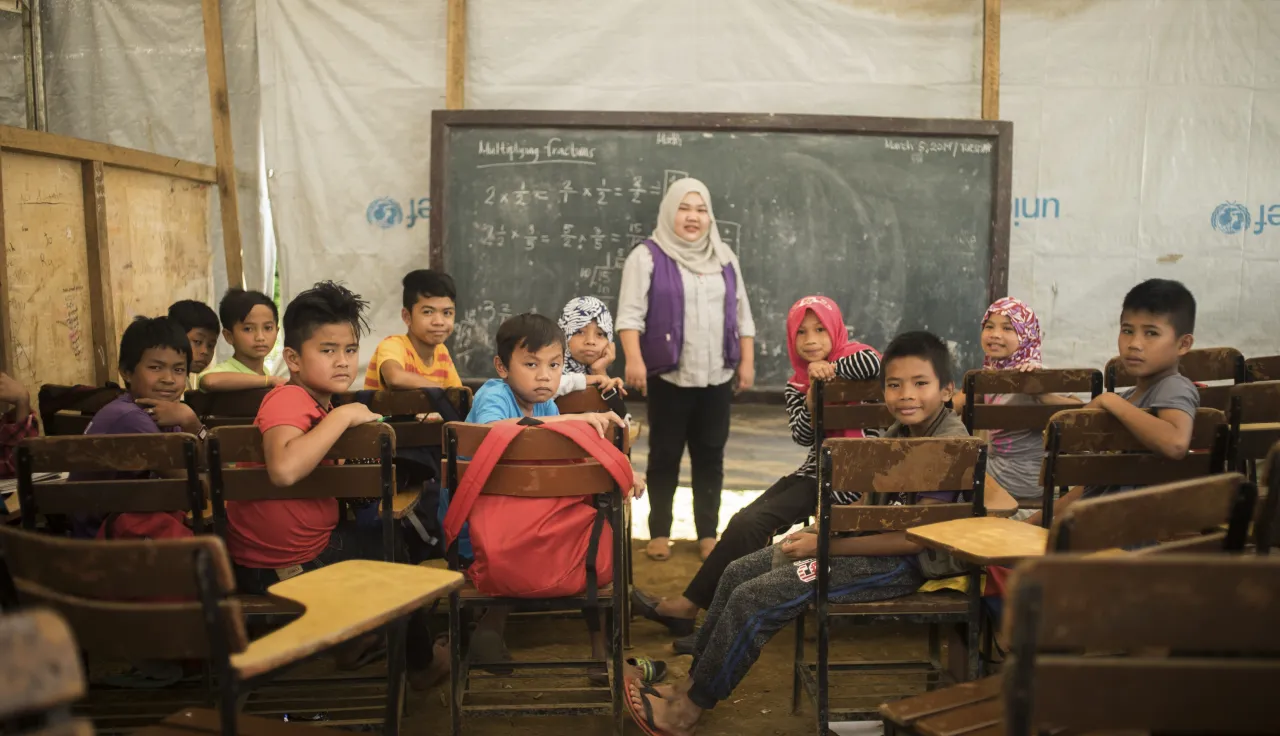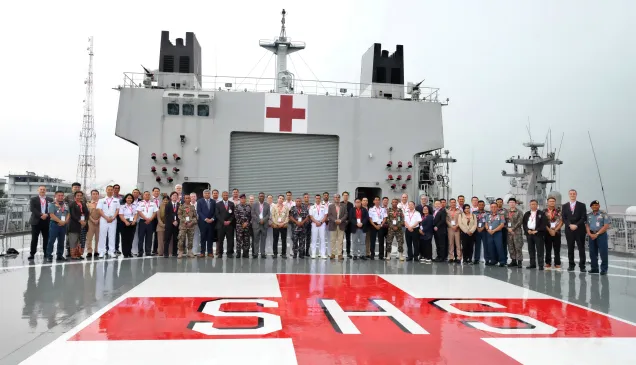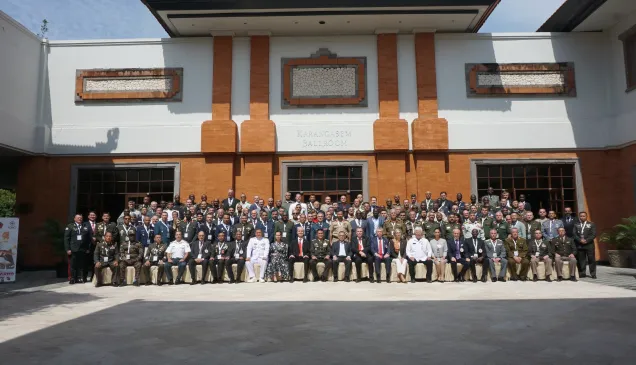Southeast Asia: Update on ensuring the continuity and resumption of access to education in crisis situations

Jakarta, Indonesia - Collaborative work among the authorities, education institutions, humanitarian organizations and other stakeholders in order to ensure the continuity and resumption of education in crisis situations was at the core of discussion during a webinar on Wednesday (28 July 2021), co-organized by ASEAN Foundation, ASEAN Institute for Peace and Reconciliation (ASEAN-IPR) and International Committee of the Red Cross (ICRC).
In his opening remarks, the Executive Director of the ASEAN-IPR H.E. Ambassador I Gusti Agung Wesaka Puja highlighted that the ASEAN Political-Security Community (APSC) Blueprint called to promote education as an effective means to instil respect and values of tolerance, non-violence and mutual understanding to prevent the spread of extremism, as well as to address its root causes.
H.E. Dr Yang Mee Eng, Executive Director of ASEAN Foundation in her welcome remarks underscored that key ASEAN stakeholders need to provide strong foundation for the region's education system and accelerate the public and private collaboration in providing better recovery roadmap for ASEAN's education system.
In her keynote speech Dr Helen Durham, Director of International Law and Policy at the ICRC, underlined that that access to education and to safe schools was critically important, before, during and after crises, creating a protective and stabilizing effect on the lives of children and their families.
The webinar then continued with a panel discussion moderated by Ms Beatrijs Vanhove, ICRC acting Head of Education, which featured speakers from the Philippines and Indonesia, namely Ms Josephine Lascano, Executive Director of the Balay Rehabilitation Centre and Ms Ayu Kartika Dewi, a member of the ASEAN Women Peace Registry (AWPR) from Indonesia.
The two speakers who are engaged in education enriched the discussion by sharing their experiences and challenges faced through their direct contacts with all stakeholders on the ground.
The exchange during the webinar identified crucial key highlights and take-aways:
Prioritizing preparedness for access to education
Better preparedness is critically important to ensure the continuity of education during crises, whatever these crises may be, including during the COVID-19 pandemic. There is a need to reinforce education as an essential public service. This means that advocating for a better access to education should be incorporated as an integrated part of humanitarian response and assistance in crisis situations.
Prioritization also means that more capital and resources should be allocated for an enhanced preparedness and school resilience. This was also acknowledged in the contexts of the ASEAN region.
Adopting best practices which could be helpful to improve access to education, before, during and after crisis
- Putting in place robust legislation to ensure access to education. In the Philippines, for example, the national government has enacted legislation related to children's welfare and development to ensure the sustainability of actions for children in emergency situations.
- Developing relevant roadmap and framework on the protection of children. For instance, is to adopt child protection safeguards (to ensure safety and reduce risks), human rights and humanitarian protection, as well as Mental Health and Psychosocial Support frameworks.
- Adopting a whole-society-approach. Rather than focusing solely on the education sector, it is important to involve other members of the community to take part in the endeavour, encouraging them to contribute to a better access to education.
- Incorporating key additional subjects in the curriculum such as sessions on peace, human rights, diversity, and reconciliation topics. This will motivate children to pursue their education and encourage critical thinking and making the learning crisis sensitive, culturally appropriate and trauma-informed.
- Allocating more resources and investment for a more robust education infrastructure that will enhance resilience. This also includes narrowing the gap of teacher-student ratio, improve remote/online learning capacities, modules and facilities as well as the accessibility of school to children.
Developing collaboration for a stronger access to education
Partnership and coordination of stakeholders are crucial. The government, community, school as well as international organizations, civil society organizations and the private sector play important roles on the basis of their own respective capacities. Proactive advocacy needs to be accelerated for stronger partnerships. In this regard, coordination among stakeholders which put an emphasis on a complementary approach is required to ensure a more effective and efficient resource mobilization.



